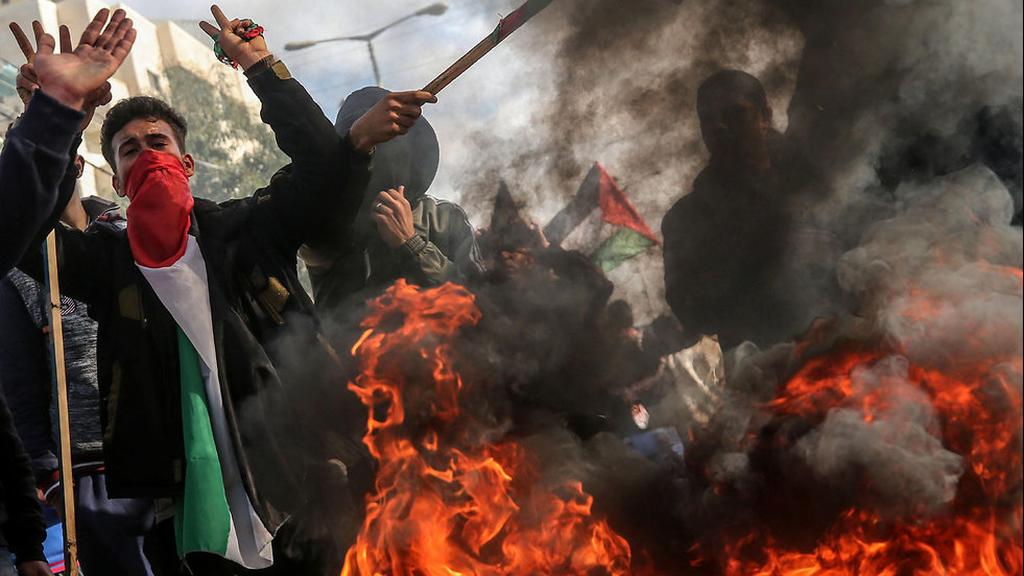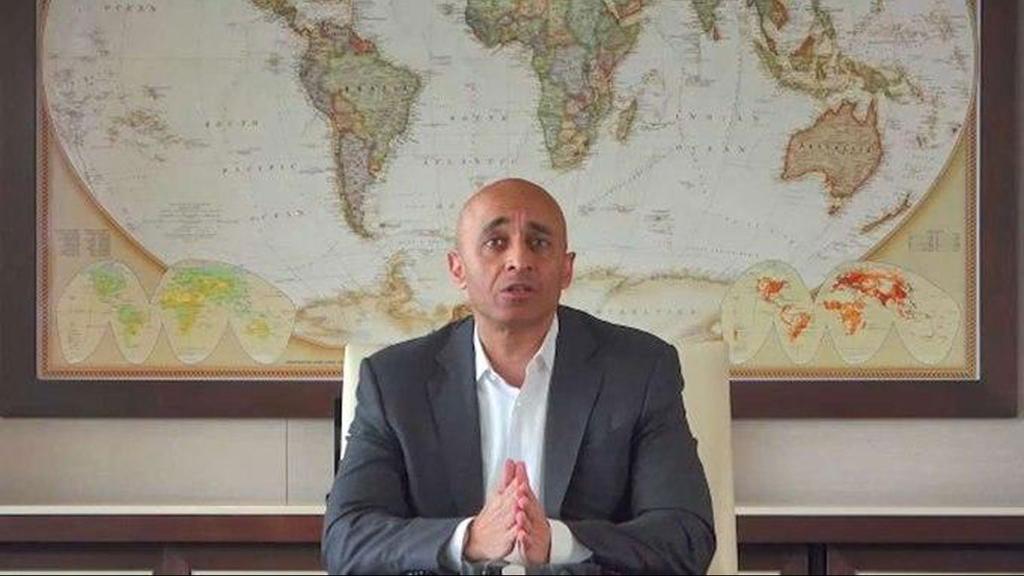It is proper to put the issue of West Bank annexation in a slightly broader context.
Until 27 years ago, both the left and the right wings of Israeli politics opposed the idea of a Palestinian state.
6 View gallery
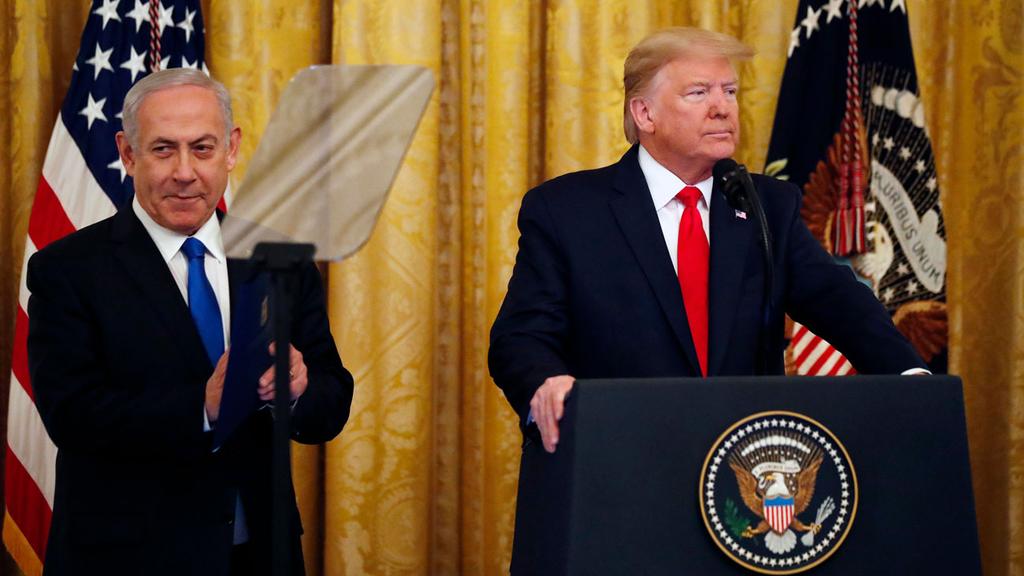

Prime Minister Benjamin Netanyahu and U.S. President Donald Trump during the announcement of "deal of the century" peace plan
(Photo: AP)
The Likud supported applying Israeli sovereignty over the entire West Bank and Gaza Strip, while granting some degree of autonomy to the Palestinians, and the Labor Party supported a "territorial compromise" with Jordan.
After 1993, however, the concept of a “two-state solution” dominated the discourse.
This concept is based on four firm assumptions:
1. The resolution to the conflict lies in the territory between the Jordan River and the Mediterranean Sea
2. The solution requires the establishment of a sovereign Palestinian state
3. Gaza and the West Bank must be part of the same country
4. The border between Israel and the Palestinian state must be based on the 1967 borders
From 1993 to 2020, all the plans put on the table - including the Clinton plan of 2000 and former prime minister Ehud Olmert's proposal to Palestinian President Mahmoud Abbas in 2007 - took for granted these four assumptions, and were therefore very similar in nature.
That is why U.S. President Donald Trump’s self-styled “deal of the century” peace plan is far more conservative than it seems.
This plan too, accepts the first three assumptions, but makes a significant change to the fourth - dividing the territories.
Trump’s plan grants Israel three additional territories in the shape of sovereignty over the Jordan Valley, sovereignty over all settlement clusters within the West Bank and sovereignty over the 19 isolated settlements to be located within in the heart of the Palestinian state.
In return (and public debate tends to ignore this), the Palestinians will receive territory in the western Negev.
This plan, despite its shortcomings, is undoubtedly better for Israel, and for this Prime Minister Benjamin Netanyahu deserves credit.
6 View gallery
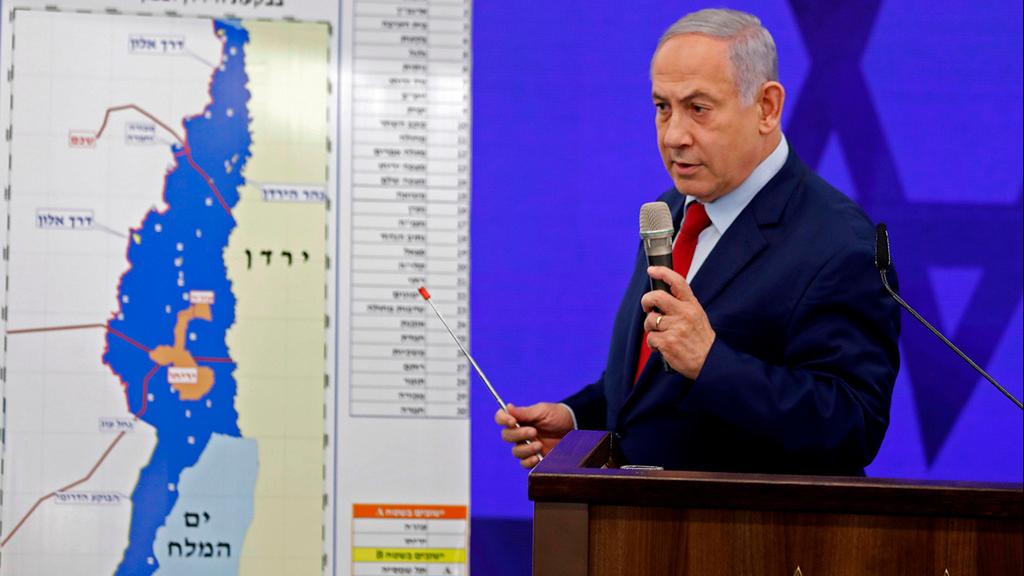

Netanyahu presents his plan to apply Israeli sovereignty over the Jordan Valley
(Photo: AFP)
Even more so, it was logical to assume that in January 2020, it would have been possible to exploit the window of time in which Trump is the president of the United States, and begin to implement said peace plan - that is, to annex all or part of the 30 percent of the West Bank designated for Israel.
For now the circumstances have changed.
First, Trump is in facing some major domestic problems and it’s doubtful his support can be counted on.
Secondly, the economic crisis in the moderate Arab states threatens the stability of their regimes, requiring them to take an outright stance against Israel if and when it decides to unilaterally annex.
This is reinforced by an article published by the Abu Dhabi Ambassador to the United States, Yousef Al Otaiba, on Ynet - which warns that such an act would destroy the trust and good will that has been built between Israel and the Gulf states.
Thirdly - and most significantly - is the crisis in which Israel now finds itself in the wake of the coronavirus pandemic.
Annexation will surely worsen the country’s security situation, and will, for the first time in a long time, give Abbas and Hamas a common goal to unite around.
The Fatah militia, alongside the Tanzim militia and other armed groups who turned passive after 2003, are also starting to prepare themselves for a fight.
6 View gallery
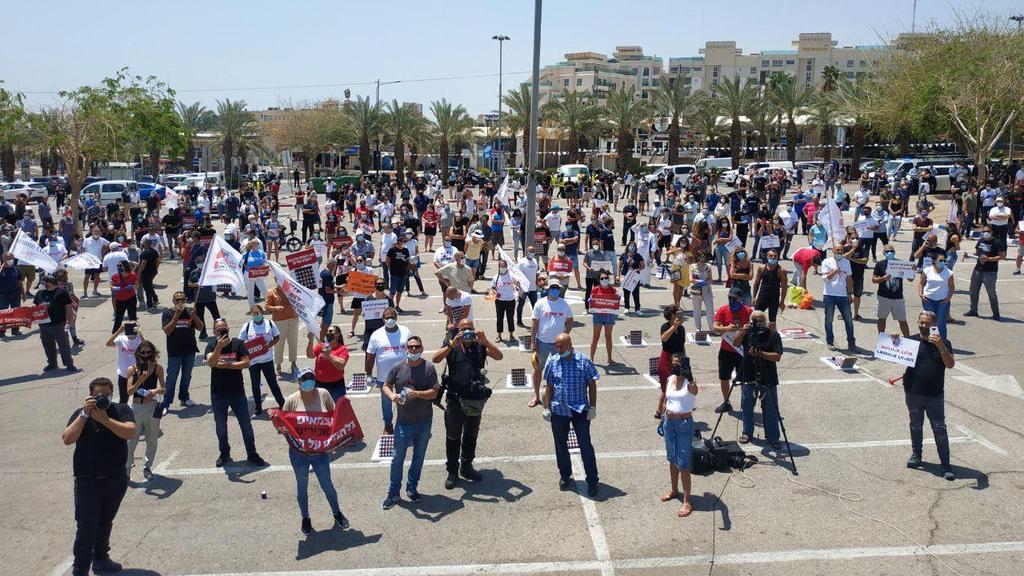

Independent business owners protesting in Eilat, over financial damages caused by the coronvirus
(Photo: Meir Ohion)
Indeed, the level of violence will not necessarily be as high as it was during the Second Intifada, but on the off chance it is, the looming crisis with Jordan, coupled with the world’s anger over the annexation, will put Israel in the alarming situation of facing both serious security and economic crises.
In 2000, Israel’s was in good economic shape, but that deteriorated due to the security crisis.
Today, though, the situation is different.
6 View gallery


Workers in the tourism industry protesting over finanacial damages caused by the coronavirus
(Photo: Amit Shabi)
Today Israel is on the precipice of a major economic crisis, eating through its reserves quickly, but the worst is still ahead.
The combination of an imminent economic crisis with the danger of a serious security crisis, and a fear of winter flu coupled with a second wave of the coronavirus, all create an unreasonable risk that does not justify the dubious benefits of unilateral annexation.
The prime minister would do well to find a good excuse to postpone the move.


